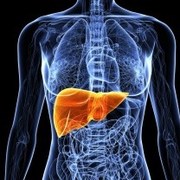 Auremar/PhotoSpin
Auremar/PhotoSpin
If you were born between the years 1945 and 1965, the U.S. Preventive Services Task Force (USPSTF) suggests a screening hepatitis C test. To many of you, this may sound odd or not applicable. However the Centers for Disease Control and Prevention reports that 76 percent of those with Hep C are baby boomers.
What does this mean for you?
Hepatitis C is a virus that is mostly transmitted through:
- Unscreened blood transfusions (screening for transfusions began in 1992)
- Unscreened organ donation
- Blood transfer through needles (drugs, improper medical or tattoo handling)
- Unprotected sex with someone who has hepatitis C
- A positive hepatitis C mother to her baby
It is a stubborn virus in that it can live outside the body at room temperature for up to four days. The concern with the virus is that it can take years for any symptoms or liver damage to occur, leaving many who have contracted the disease without realizing it.
Symptoms may also be quite general such as fatigue, right upper abdominal pain, itchy skin, and nausea. However as the liver worsens liver enzymes increase on blood tests.
The main problem with hepatitis C is that it can become chronic over many years leading to liver cancer, liver cirrhosis and liver failure.
Testing requires a simple blood test done at your health care provider’s office or lab.
Testing is important for many baby boomers who may have partaken in risky behavior when they were younger and have since cleaned up their lifestyle and do not feel sick, and don't think they are affected.
Boomers may have also had a blood transfusion as a child which potentially put them at risk but they have forgotten about the incident.
For those who go on to develop chronic hepatitis, routine monitoring of the liver is important through a liver enzyme blood test and liver ultrasound in order to determine if there is damage or inflammation.
Unfortunately there is no vaccination for hep C. The medication treatments can be very helpful but come with a lot of harsh side effects. Lifestyle changes to protect liver health are important.
Some of these lifestyle changes include eliminating all alcohol, being very aware of medications and hormones as they are filtered through the liver. Other useful changes are eating healthy, clean foods, and keeping blood sugar and cholesterol in the normal range, as well as maintaining a healthy weight.
Dietary choices such as leafy greens, broccoli, cauliflower, garlic, onions, dandelion root, milk thistle, beets, artichoke and fiber are all known to be liver-friendly foods.
Do not be a statistic with hepatitis C. Please talk with your health care provider about getting this simple test, and be pro-active with your health.
Sources:
1.Garcia, J. (2013). Hepatitis C: USPSTF Recommends All Baby Boomers Be Screened. Web. Retrieved 24 June, 2013.
http://www.medscape.com/viewarticle/806836
2. Centers for Disease Control and Prevention. (2012). Hepatitis C FAQs for the Public. Web. Retrieved 26 June, 2013.
http://www.cdc.gov/hepatitis/C/cFAQ.htm#statistics
Reviewed June 28, 2013
by Michele Blacksberg RN
Edited by Jody Smith





